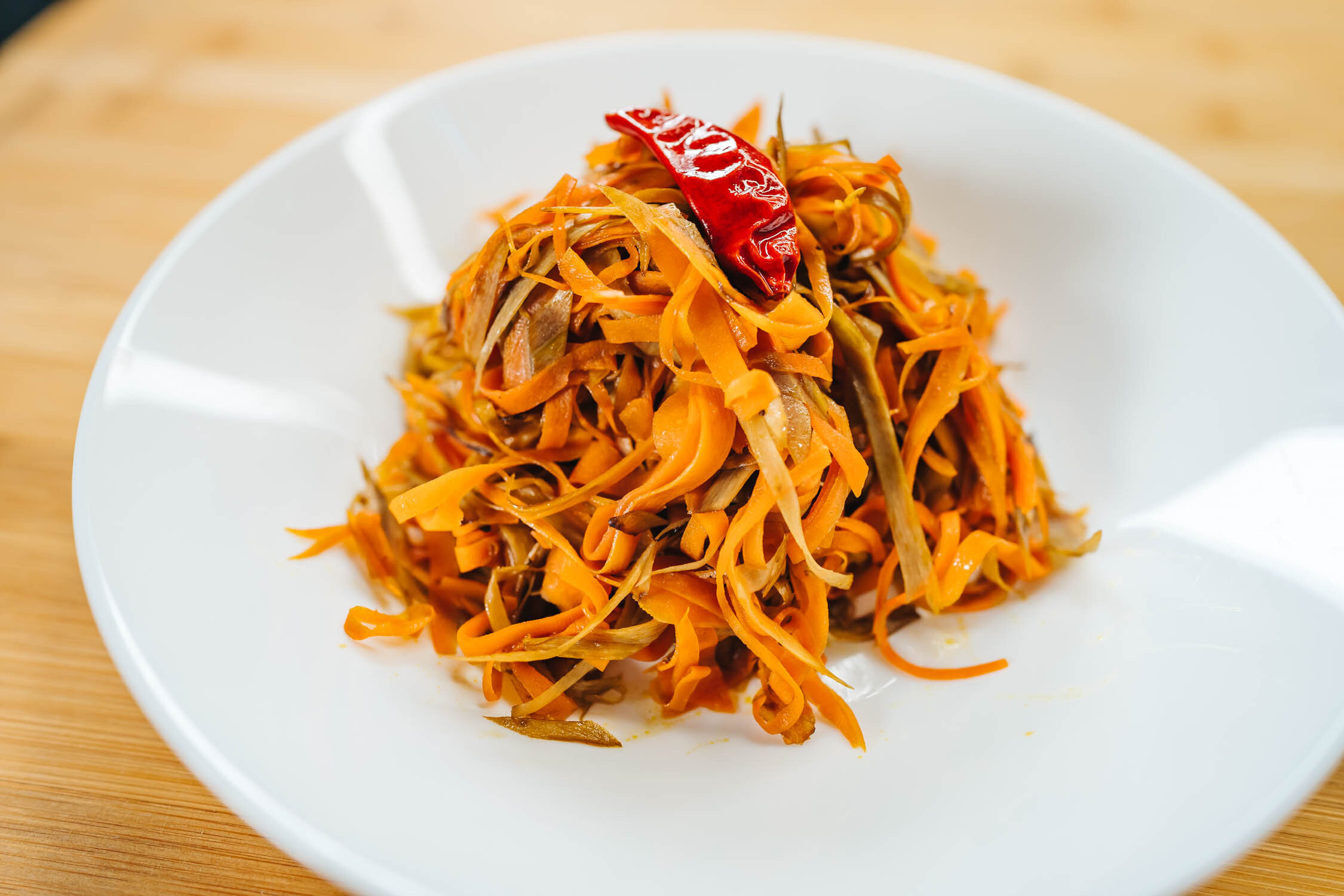Burdock root is a Japanese food that has many benefits for the body.
Gobó is a burdock root name. Mostly used in sushi. It has multiple benefits. In Japan, it is common and widely used in multiple dishes.
What is Gobó?

Gobó is a Japanese health food that has been gaining popularity in recent years. Gobo means “burdock root” in Japanese, and the root is the main ingredient in this dish. Gobó is usually made by simmering burdock root in water or broth, and it can be served either hot or cold. Some people also add other ingredients to their Gobó, such as carrots, daikon radish, or seaweed.
Burdock root is a good source of fiber, vitamins, and minerals. The also contains compounds have been shown to have antioxidants, anti-inflammatory, cancer-preventive properties.This is thought to be beneficial for overall health. The Additionally, because Gobó is made only natural ingredients, it is considered to be a very healthy option compared to other processed the foods.
The cultural significance in its history. Burdock root was first brought to Japan from China over 1,000 years ago. The used as a traditional medicine for treating a variety of ailments. In more recent years, burdock root has become popular as a health food due to its many potential health benefits. As a result, Gob
History of Gobo
Gobo is a root vegetable that is native to East Asia. It has used in traditional Chinese medicine for centuries, and has only recently become popular in the West. This is rich in vitamins and minerals, and has a variety of health benefits.
Gobo has a long history in Chinese culture. It is was the first mentioned in the ancient text “The Yellow Emperor’s Classic Medicine.
Gobo is continued to be used the traditional Chinese medicine for centenary, but it was not until recently that it is became popular in the West. It is rich in vitamins and minerals, and has a variety of health benefits. Some of these health benefits include:
– improved circulation
– pain relief
– reduced inflammation
– Boosting the immune system
– aiding digestion
Gobo is also a popular ingredient in Asian cuisine. If you are looking for a healthy and delicious way to add more vegetables to your diet, then Gobo is a great option!
Health Benefits
Gobō, or burdock root, is a vegetable with a long history of use in traditional Chinese medicine. Its health benefits are many and varied, making it a popular choice for those looking to improve their overall health. It is rich in vitamins and minerals, including calcium, magnesium, potassium, and iron. It also contains fiber, which can help to regulate digestion and prevent constipation. Additionally, gobo is a good source of antioxidants and has anti-inflammatory properties. These properties make it beneficial for treating a wide range of conditions, such as allergies, arthritis, and skin problems.
Gobō, or burdock root, is a popular vegetable in Japan with a long history of use in traditional medicine. Modern research has shown that contains a number of compounds with health benefits, including antioxidants, anti-inflammatory agents, and prebiotic fiber.
Gobo is often eat as part of healthy diet to promote gut health and reduce inflammation.
Recipes
If you’re looking for some delicious and healthy recipes, look no further! Here are some of our favorites:
Gobó Soba Noodles: These noodles are a great way to get your gobó fix! They’re healthy, filling, and easy to make.
Gobó Tempura: This is a light and crispy way to enjoy gobó. It’s perfect as an appetizer or side dish.
Gobó Rice Bowl: This is a hearty and satisfying meal that’s perfect for a winter day. It’s warm, filling, and packed with nutrients.
It is a healthy and delicious way to enjoy the many benefits of tofu. This is high in protein and low in calories, making it an ideal food for those who are looking to lose weight or maintain a healthy weight. It is also a good source of calcium, iron, and vitamins A and C. This dish is very typically served with rice and a variety of side dishes.